In this article, we’ll dive into what Ebi Meshi is, how it came to be, what makes it special, and answer some common questions about it. Whether you’ve never heard of it or you’re already a fan, you’ll come away knowing why this dish holds such a special place in people’s hearts.
What Makes Ebi Meshi Special?

Ebi Meshi is a type of Japanese fried rice, but it doesn’t look like any regular fried rice you may know. Instead of a golden or soy-colored tone, the rice is dark—almost black. This color doesn’t come from soy sauce, which you might expect. It actually comes from a special sauce made with caramel sauce, ketchup, curry powder, and a mix of spices. The caramel adds the color, while the ketchup and curry give it a sweet and slightly tangy flavor.
The name “Ebi Meshi” literally means “shrimp rice,” and shrimp play a leading role in the dish. Cooks stir-fry the shrimp with chopped onions, sometimes mushrooms, and then mix everything with rice. After that, they pour in the signature black sauce to coat the rice completely. To finish the dish, they often top it with shredded egg omelet and green peas. These toppings not only add color but also balance out the flavors and textures.
Where Did Ebi Meshi Come From?
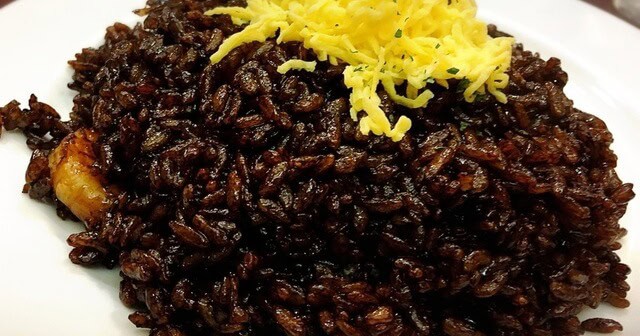
The story of Ebi Meshi doesn’t start in Okayama, even though it’s now the dish’s hometown. It actually began in Tokyo in 1955. A curry restaurant in the Shibuya area called “Indeira” came up with the recipe. The founder, Tatsumi Idei, wanted to create something new and memorable, and that’s how Ebi Meshi first landed on the menu.
A few years later, Idei moved back to Okayama, his hometown. In 1966, he opened another Indeira restaurant there and brought the Ebi Meshi recipe with him. People in Okayama quickly fell in love with it. Over time, the recipe changed slightly to fit local tastes. Cooks in Okayama made the flavor a bit sweeter and added raw mushrooms to the mix. The sauce also became more specialized, turning into what we now know as the “Ebi Meshi sauce.”
Thanks to these changes, Ebimeshi became more than just a dish—it turned into comfort food for the people of Okayama. Today, you can find it all over the city, in small cafes and family restaurants. Some places even sell frozen or packaged versions so people can enjoy it at home, even if they live far from Okayama.
Where can you eat Ebi Meshi?
Ebimeshiya Tatsumi (えびめしや)
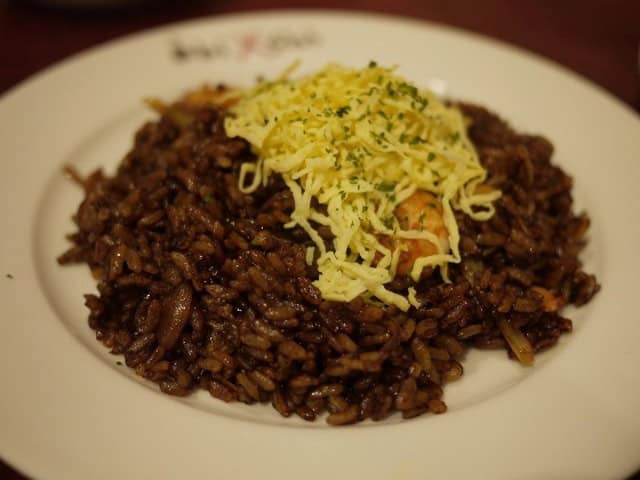
Ebimeshiya Tatsumi is a well-known restaurant in Okayama City, famous for its distinctive local specialty, Ebi Meshi. The restaurant is credited with bringing Ebi Meshi, which originated in a Tokyo curry restaurant, to Okayama, where it quickly became a beloved local soul food. Ebimeshiya Tatsumi’s signature Ebi Meshi features rice stir-fried in their original, fragrant sauce, combined with plump shrimp and a gentle sweetness.
Ujō Coffee Shop(烏城珈琲店)

A calm, castle-themed café on the ground floor of Hotel Excel Okayama, steps from Okayama Castle. They serve traditional Ebi-meshi and a special version topped with fried shrimp and homemade tartar sauce.
Cafe Antenna(カフェ アンテナ)

A stylish café near Korakuen Garden offering Ebi-meshi with salad. Its mellow flavor comes from Okayama’s Shimizu white peach paste, topped with crispy fried shrimp.
Final Thoughts
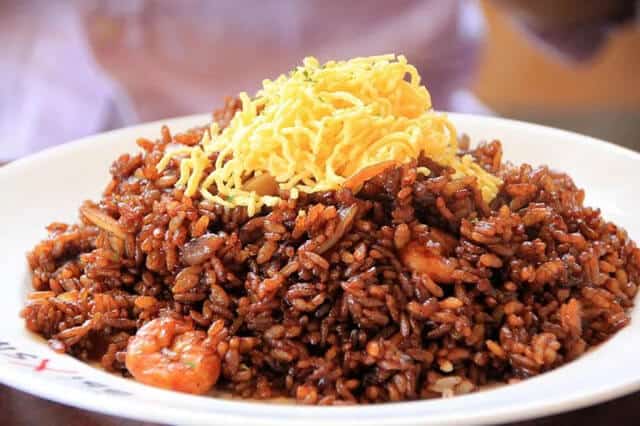
Ebi Meshi is more than just a meal. It’s a reflection of how food can travel, change, and grow into something that represents a whole region. Starting as a Tokyo invention, this black fried rice found a new life in Okayama, where it now feels like it’s always belonged.
If you get the chance to visit Okayama, make sure to try a plate of Ebi Meshi. It’s sweet, savory, full of flavor, and unlike anything you’ve had before. And if you enjoy it, you might also want to check out other tasty Japanese rice dishes like Takikomi Gohan (seasoned rice with veggies and meat), Omurice (rice wrapped in an omelet), or Japanese Curry Rice.
FAQ
- What is Ebi-meshi?
It’s a specialty fried rice from Okayama, made with shrimp and a rich, dark sauce.
- Why is the rice dark?
The color comes from a special sauce made with demi-glace and ketchup.
- Is it spicy?
No, it’s sweet and savory, not spicy.
- Can I find it outside Okayama?
It’s rare, but some restaurants in other cities may serve it.
- What is it usually served with?
Often paired with salad, soup, or an omelet on top.
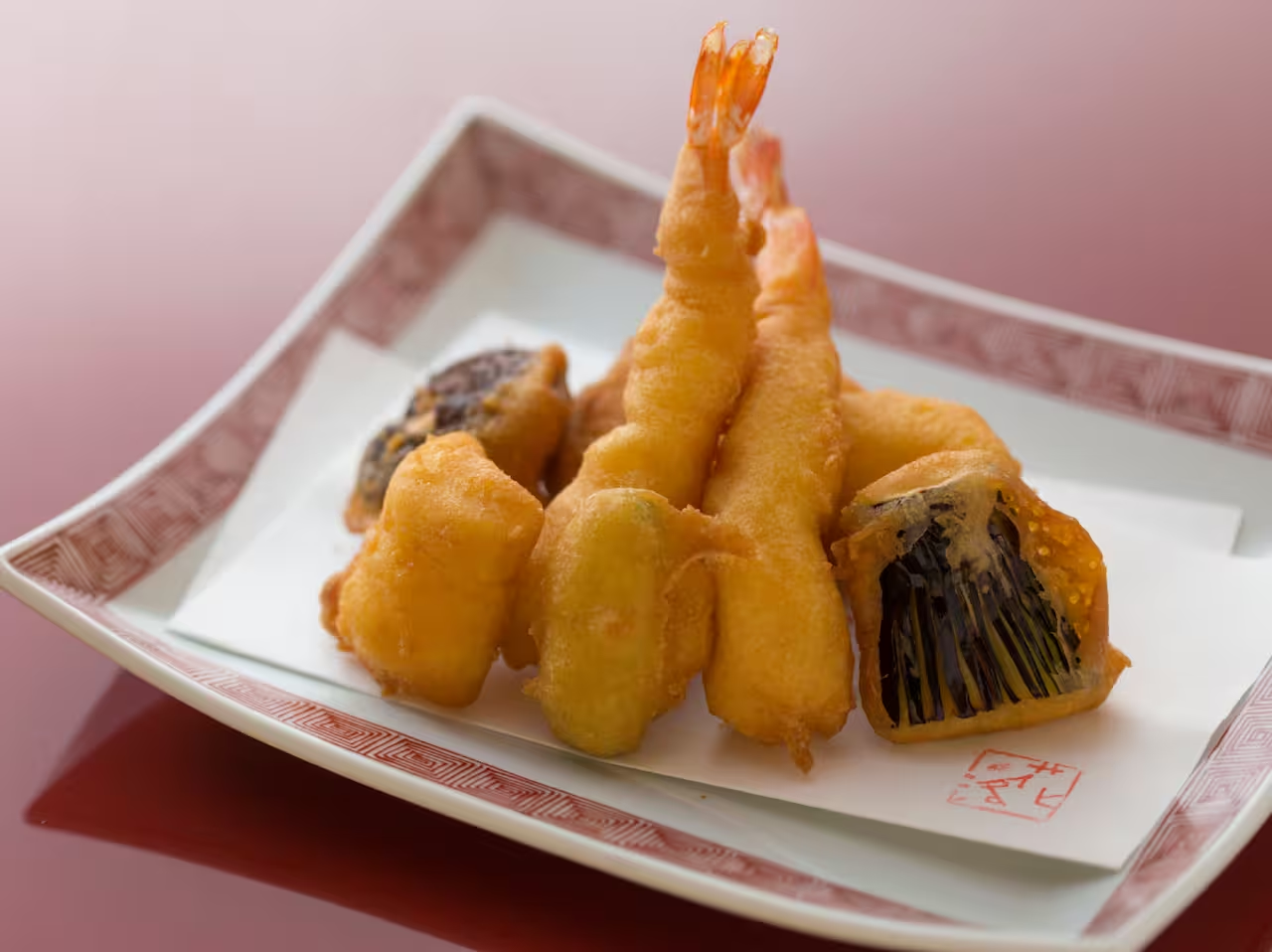
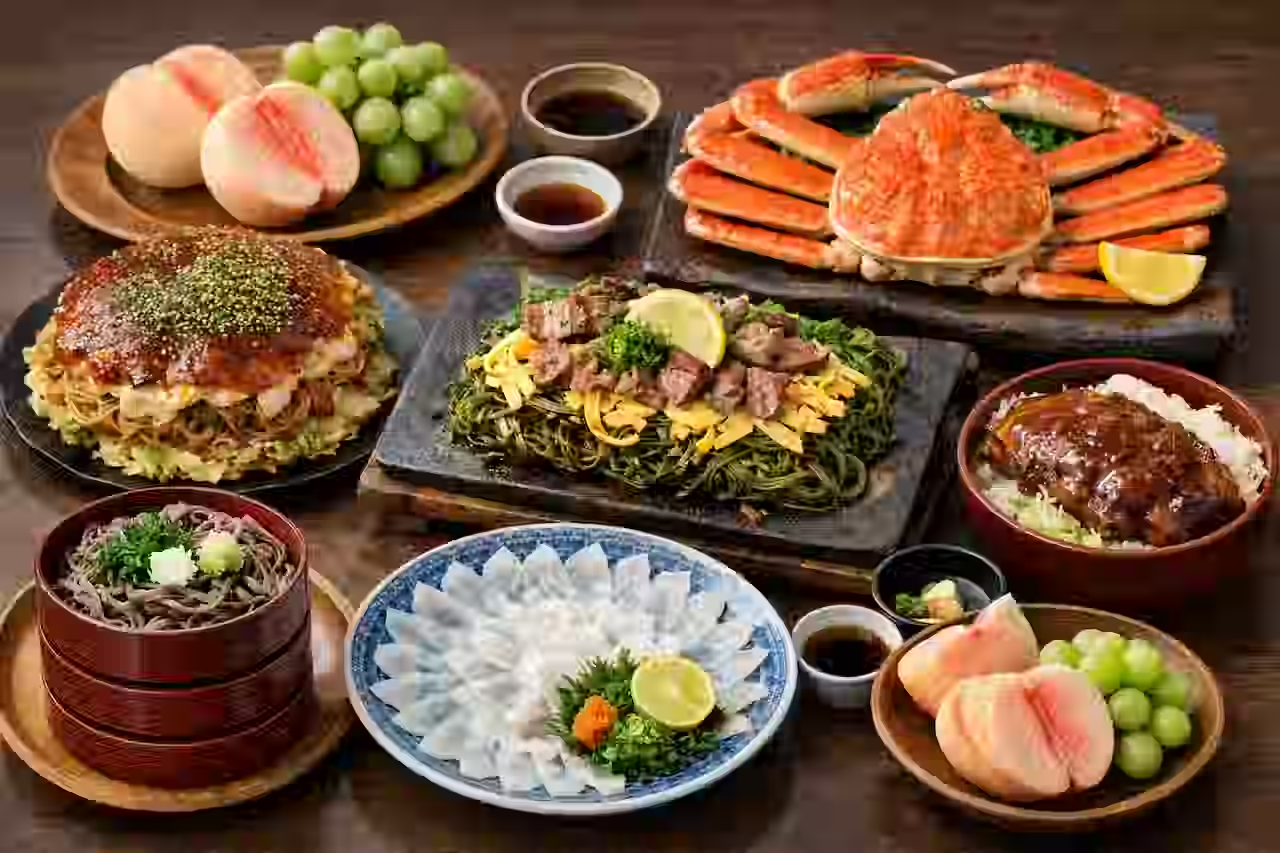
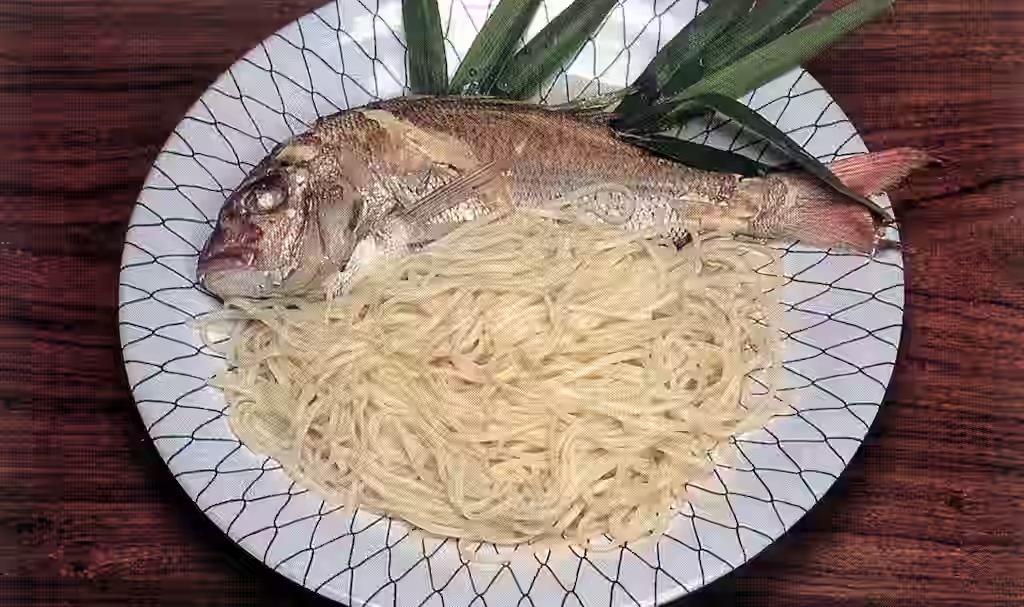

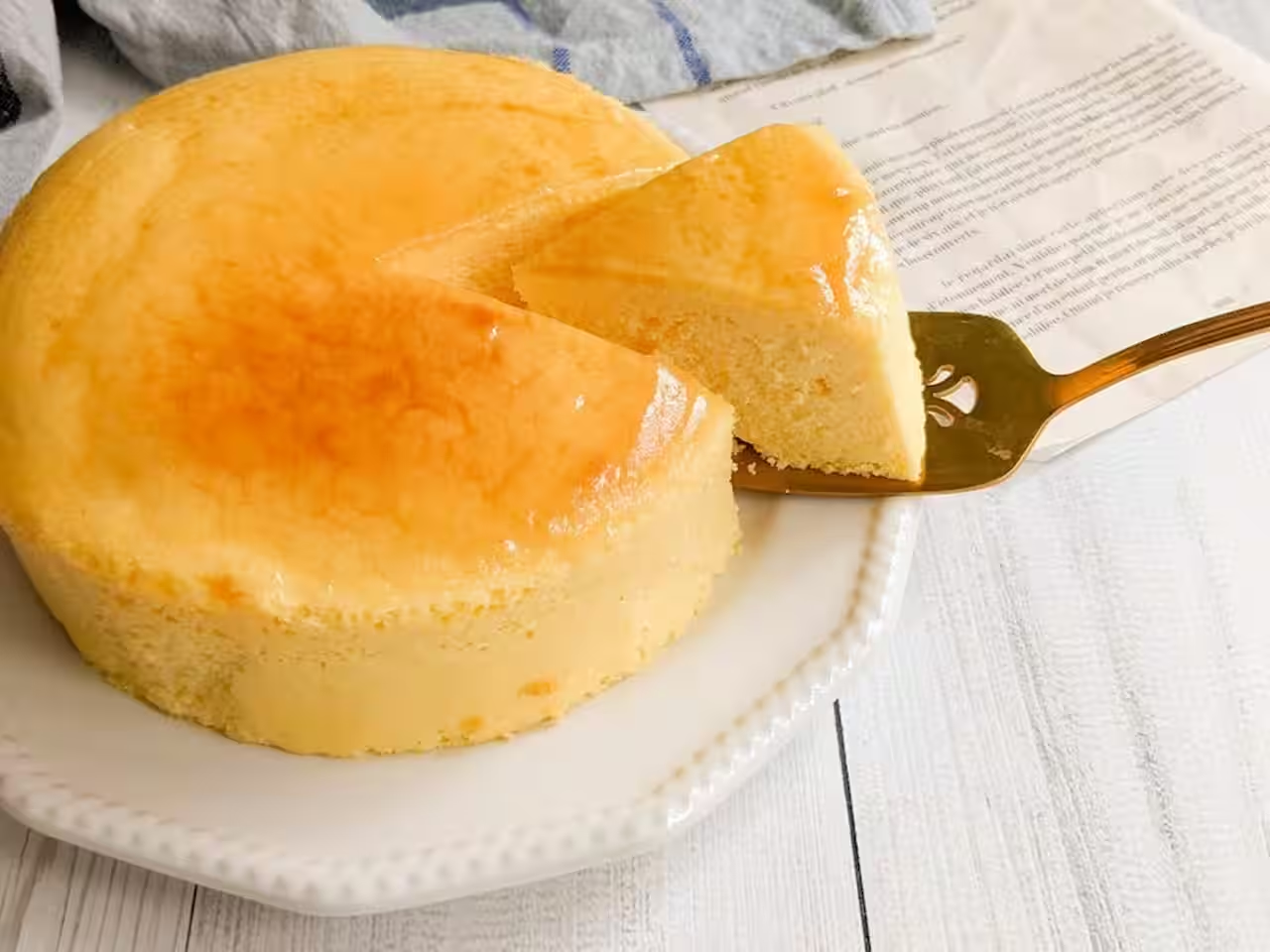

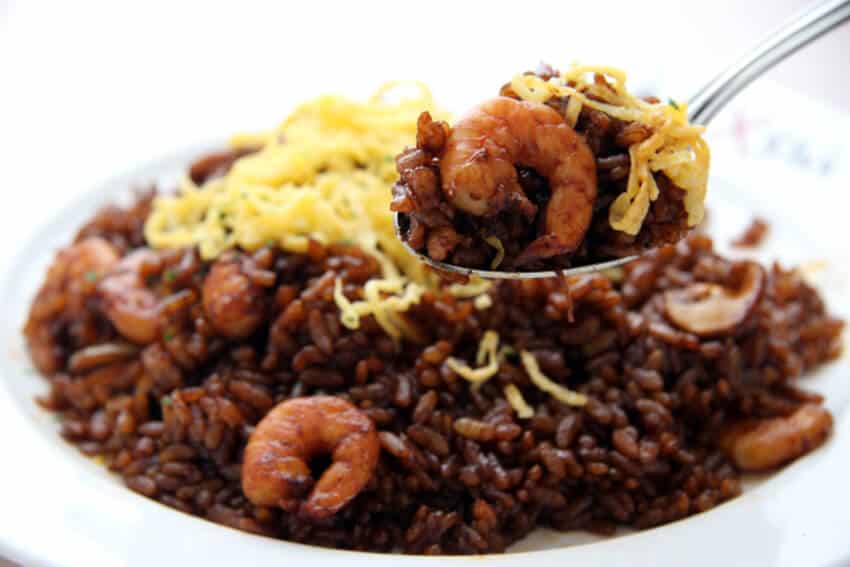
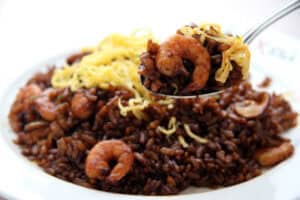
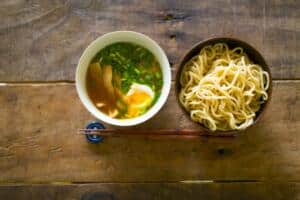
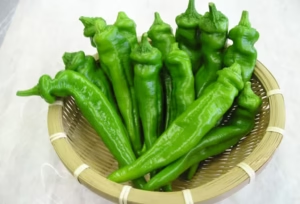
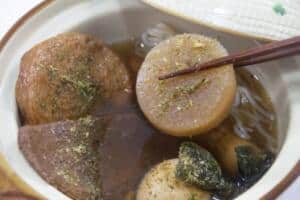
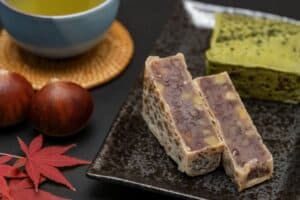
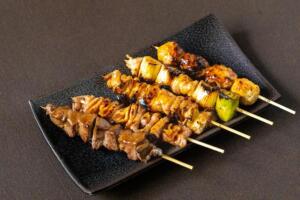
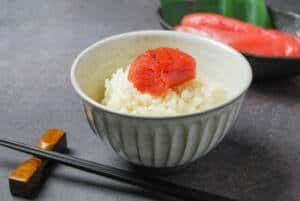
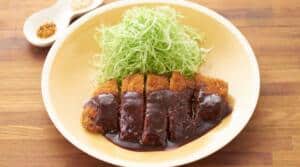
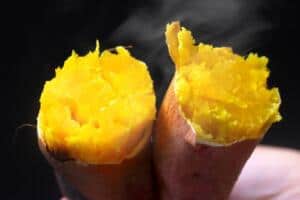
Comments